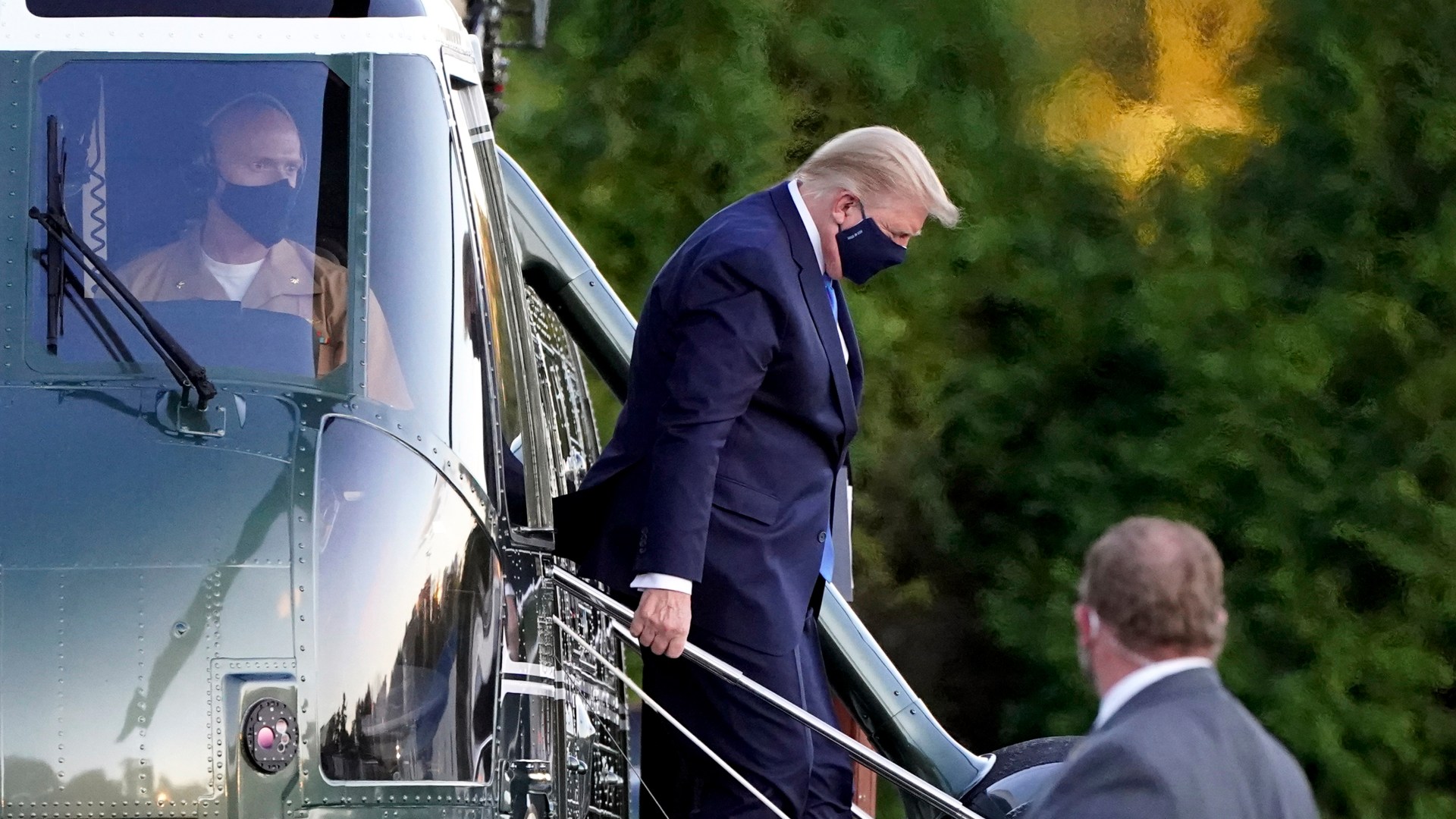For the last few days, Americans have been shocked and concerned about the president’s hospitalization due to COVID-19. The reactions have been varied, and many have been decidedly theological. As Kate Shellnutt reported recently for CT, “Several pastors and ministry leaders encouraged Americans that this was a time to pray for the president and the country regardless of their political stances.”
For some leaders, that invitation might come easily. But for others of us, prayerful action comes in the context of a more conflicted view of the current administration. How exactly do we respond to news of the president’s illness?
Seen from one angle, the answer is straight forward. We pray. In my Anglican church, we intercede for our leaders every Sunday with some version of the following:
We pray that you will lead the nations of this world in the way of righteousness; and so guide and direct our leaders, especially the President of the United States, Donald Trump, that your people may enjoy the blessings of freedom and peace. Grant that your leaders may impartially administer justice, uphold integrity and truth, restrain wickedness and vice, and protect true religion and virtue.
At the center of this prayer is the idea that all governments have a solemn responsibility to work on the side of truth, justice, and integrity. They are supposed to inspire virtue and limit the damage of vice. The prayer pertains not only to them as persons but to their powerful influence over the lives of so many.
This year, especially, church leaders have had much to say about the culture and ethos of this country and how it’s shaped by governors, local officials, and especially the president. Christian intercession, then, is not about blind allegiance. It is a recognition that the wellbeing of many often rides on the decisions of a few.
The scope of that influence is precisely why I have prayed for Trump, often daily, throughout the entirety of his presidency. I have disagreed strongly with some of his policies and actions . But when I disagree, I do not pray less; I pray more. As David French writes, “Christians of all political persuasions should humbly (and with full knowledge of our own frailty) seek true repentance from men and women in power. Their transformation benefits us all.”
For me, then, the president’s bout of sickness will add further content to my prayers, but it will not change my fundamental practices.
While Christians should be united in praying for our leaders, our Christian responsibility to the state extends further. The same Bible that calls upon us to pray for our leaders also calls upon them to rule justly.
The Hebrew Scriptures contain an important story about the prophet Daniel and Nebuchadnezzar, the Babylonian king. In this story, Daniel warns Nebuchadnezzar that he will lose his kingdom for a time. But Daniel believes there is still an opportunity, if the king humbles himself and shows concern for the poor:
Therefore, Your Majesty, be pleased to accept my advice: Renounce your sins by doing what is right, and your wickedness by being kind to the oppressed. It may be that then your prosperity will continue. (Dan. 4:27)
Although Daniel and the king had different religious views, the prophet still expected this foreign ruler to care for the oppressed.
Alongside Daniel, leaders of the early church also called out injustice. It follows, then, that all politicians, regardless of their religious views, have the same moral obligations: to care for the oppressed and maintain the kind of order that allows for human flourishing. It also follows that our Christian responsibility as citizens is not only to pray for leaders when they’re sick. It includes standing against injustice and for peace and stability. Those two callings are not in competition.
Furthermore, we believe that all life is sacred—from the president in the hospital to the baby growing in the womb to the person facing police arrest for unjust reasons. In the other words: The same faith that demands we respect the sanctity of black life lost to unjust violence requires us to respect the sanctity of the life of the president, even when we have sharp disagreements.
Of course, some will call the president’s illness a form of divine retribution. But that remains very dangerous territory for the Christian. We cannot always draw a straight line from a particular form of suffering to its cause. Nonetheless, we do believe that suffering often has the ability to teach us something about ourselves, God, and the world. The focus on Trump’s illness gives us a chance to gain further empathy for the hundreds of thousands who have suffered and died from this disease.
Hopefully, the next few weeks will help us recommit to the most basic form of neighborly love—namely, attending to the health of the most vulnerable. We show this love by engaging in the monotonous and often thankless work of vigilance. We heed the advice of medical and scientific experts in order to hinder the spread of the virus. We love in word and in deed. And we pray for those at risk.
We pray especially for those we love and like. But we’re doubly called to pray for our enemies (Matt. 5:44) and those with whom we disagree. That Christlike love forms the very foundation of our faith.
Esau McCaulley is an assistant professor of New Testament at Wheaton College and the author of Reading While Black: African American Biblical Interpretation as an Exercise in Hope.
Speaking Out is Christianity Today’s guest opinion column and (unlike an editorial) does not necessarily represent the opinion of the publication.









